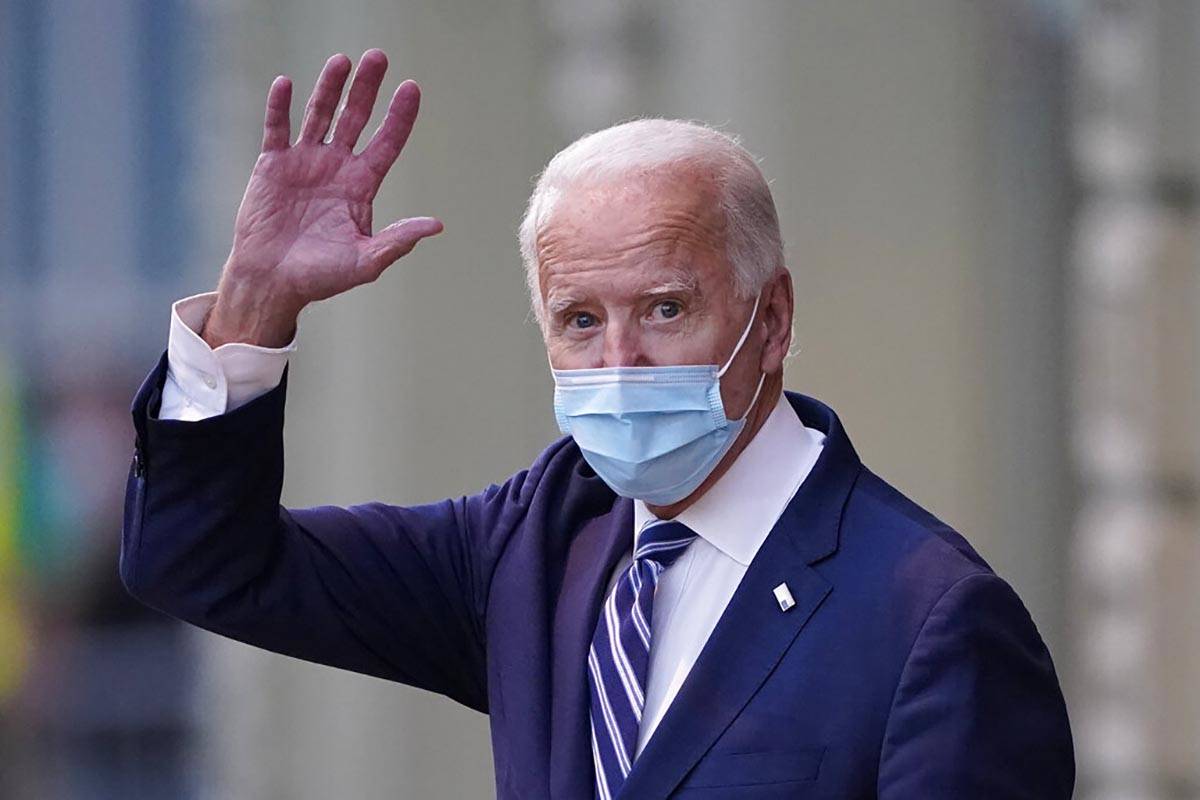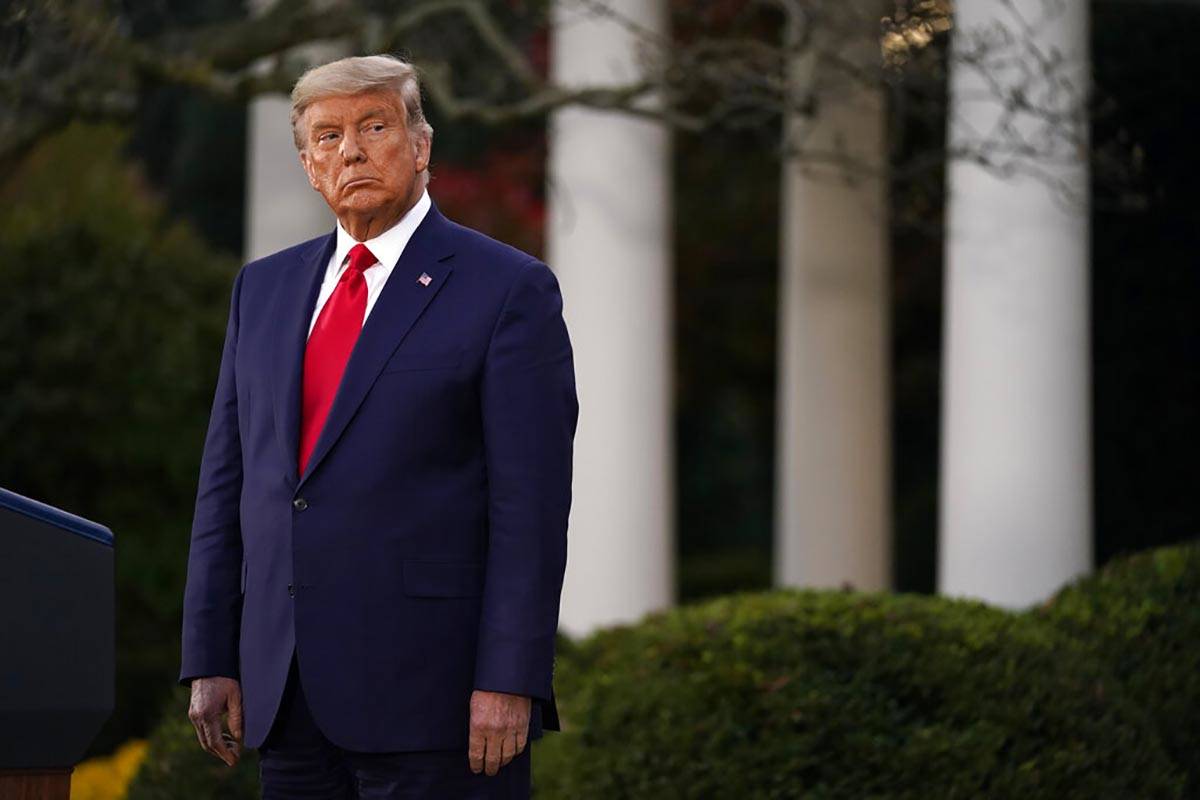Biden faces tough choice on COVID lockdowns; new US cases hit record 181K
WASHINGTON — Joe Biden faces a decision unlike any other incoming president: whether to back a short-term national lockdown to finally arrest a raging pandemic.
For now, it’s a question the president-elect would prefer to avoid. In the week since he defeated President Donald Trump, Biden has devoted most of his public remarks to encouraging Americans to wear a mask and view the coronavirus as a threat that has no regard for political ideology.
But the debate has been livelier among members of the coronavirus advisory board Biden announced this week. One member, Dr. Michael Osterholm, suggested a four- to six-week lockdown with financial aid for Americans whose livelihoods would be affected. He later walked back his remarks and was rebutted by two other members of the panel who said a widespread lockdown shouldn’t be under consideration.
Tough dynamic
That’s a sign of the tough dynamic Biden will face when he is inaugurated in January. He campaigned as a more responsible steward of America’s public health than President Donald Trump is and has been blunt about the challenges that lie ahead for the country, warning of a “dark winter” as cases spike.
But talk of lockdowns are especially sensitive. For one, they’re nearly impossible for a president to enact on his own, requiring bipartisan support from state and local officials. But more broadly, they’re a political flashpoint that could undermine Biden’s efforts to unify a deeply divided country.
“It would create a backlash,” said Dr. Amesh Adalja, a senior scholar at the Johns Hopkins Center for Health Security who added that such a move could make the situation worse if people don’t comply with restrictions. “Lockdowns can have consequences that diminish the value of such an approach.”
During his first public appearance since losing the election, Trump noted on Friday that he wouldn’t support a lockdown. The president, who has yet to publicly acknowledge Biden’s victory, would likely reinforce that message to his loyal supporters once he’s left office.
Still, the pandemic’s toll continues to escalate.
Cases soar across US
The coronavirus is blamed for 10.8 million confirmed infections and more than 244,000 deaths in the U.S., with the closely watched University of Washington model projecting nearly 439,000 dead by March 1. Deaths have climbed to about 1,000 a day on average.
New cases per day are soaring, shattering records over and over and reaching an all-time high on Friday of more than 181,000.
Several states are beginning to bring back some of the restrictions first imposed during the spring. But leaders in much of the country are proceeding with caution, aware that Americans are already fatigued by virus-related disruptions.
— Illinois’ drivers services facilities will close for in-person business for three weeks starting Tuesday because of the statewide surge in COVID-19 cases. The state reported 15,223 new cases Thursday, bringing the total cases to more than 553,000 with 52 new deaths for a total of 10,907.
— A data glitch produced artificially low coronavirus case numbers on Friday in Utah, with “only” 2,150 new diagnoses reported, state health officials said. But COVID-19 hospitalizations and deaths again rose to record highs, with the state reporting the deaths of 100 Utahans in just the past two weeks. Since Thursday, 14 have died, according to the Salt Lake Tribune.
— Oregon topped 1,000 new coronavirus cases for a second day in a row Friday as Gov. Kate Brown announced sweeping new business and social gathering restriction to slow spread. The Oregon Health Authority reported seven more deaths and 1,076 new cases. Oregon is now averaging a record 904 cases a day over the past week, more than 2 ½ times the volume from three weeks earlier. Oregon also set new records Friday for active hospitalizations, while the percentage of Oregonians who are tested and positive remained at an all-time high. Brown’s action to close some businesses and restrict social gatherings, effective Wednesday, is part of an evolving push to slow spread and save hospital capacity.
— California health officials are recommending residents avoid unnecessary travel — including for Thanksgiving — and urging those who do head out of state to self-quarantine for 14 days when they return. The move comes amid ominous new signs that California is in the midst of a major new outbreak. Weekly coronavirus cases have doubled in just the last month, from nearly 23,000 cases a week a month ago to almost 48,000 in the seven-day period that ended Thursday, according to a Los Angeles Times analysis.
— Washington Gov. Jay Inslee stopped short of announcing new stay-at-home orders in his speech Thursday but many businesses and trade groups are already bracing for a new round of potentially costly restrictions as early as next week. The state has reported an average of 1,352 new daily cases for the past 14 days.
— Arizona reported 3,952 new cases on Friday, pushing its total cases to more than 271,000. There have been 6,257 people who died from the virus.
Review-Journal digital producer Marvin Clemons contributed to this report. Contact him at mclemons@reviewjournal.com. Follow @Marv_in_Vegas on Twitter.























